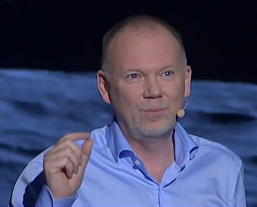
24 Jan 2023
Sweden's AI Supercomputer Gets NVIDIA GPU Upgrade
Residents of the country of Sweden plan to benefit from upgrades to its Berzelius AI supercomputer, according to Anders Ynnerman, a professor at Linköping University. Ynnerman leads Sweden’s largest research effort, the Wallenberg Artificial Intelligence, Autonomous Systems and Software Program (WASP).
“This is a year when people are turning their focus to sustainability challenges we face as a planet,” he said. “Without advances in AI and other innovations, we won’t have a sustainable future.”
nVidia GPUs Up the Game
Based on the nVidia DGX SuperPOD, the upgraded system will deliver nearly half an exaflop of AI performance, placing it among the world’s 100 fastest AI supercomputers. To build big AIs, Berzelius will add 34 nVidia DGX A100 systemsto its cluster of 60. The new units will have GPUs with 80GB of memory each.
Last summer, the system trained GPT-SW3, a family of large language models capable of drafting a speech or answering questions in Swedish. Today, a more powerful version has 20 billion parameters, with a long-term goal of implementing 175 billion parameters that’s fluent in Nordic languages like Danish and Norwegian.
“A machine like Berzelius is fundamental not only for the results it delivers, but the way it catalyzes expertise in Sweden,” he said. “We’re a knowledge-driven nation, so our researchers and companies need access to the latest technology to compete.”
From Healtcare to Space
In healthcare, a data-driven life sciences program, funded by the Wallenberg Foundation, will be a major Berzelius user. The program spans 10 universities and will, among other applications, employ AI to understand protein folding, fundamentally important to understanding diseases like cancer.
Others will use Berzelius to improve detection of cancer cells and navigate the massive mounds of data in human genomes.
Sweden’s work in image and video recognition will also get a boost from Berzelius. Such algorithms advance work on the autonomous systems used in modern factories and warehouses.
One project is exploring how autonomous systems act in space and undersea. It’s a topic close to the heart of a recent addition to WASP, researcher Christer Fuglesang, who was named Sweden’s first astronaut in 1992.
Photo of Anders Ynnerman from Nvidia.
Follow us on social media:


.d57b427b.png&w=3840&q=75)

















